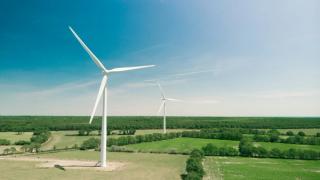
Electrifying mine hauling will boost energy strategy importance
by Jonathan Mayhew , Jasper Schrijvers
View post

The Equator Principles (EPs) is a risk management and decision-making framework, adopted by financial institutions, for determining, assessing, and managing environmental and social risk (E&S) in large (over US$10m) development projects. Typically, the focus of the EPs has been on projects in less developed countries and emerging markets (which make up over 70% of international project finance debt). In these jurisdictions, there is typically higher E&S risk due to less robust E&S governance, regulatory and legislative systems.
However, with the latest iteration of the EPs (EP4 took effect on October 1, 2020), high-income ‘Designated Countries’[1] like the United States, Canada, Australia and the United Kingdom may have new E&S obligations when seeking financing from EP financial institutions. These obligations may be assessment or mitigation measures beyond those typical to due diligence, environmental assessment, or authorisations necessary to demonstrate compliance with local law. This means where companies and project proponents in Designated Counties typically did not have to apply international standards in the past, they now must consider them as part of E&S risk assessments. While not new to projects in emerging markets, such new obligations for projects in Designated Countries could be in the form of human rights screening, labour and working conditions monitoring, climate change assessments, recognising impacts on Indigenous Peoples, and GHG and CO2 reporting and disclosure.
A major catalyst for this change was a project in the United States – the Dakota Access Pipeline (DAPL) project. DAPL was a multi-state crude oil transport project from the Bakken fields of North Dakota, financed by financial institutions adopting the EPs. DAPL quickly became controversial, largely due to the perceived E&S risks to sacred Native American land. Many in the Standing Rock tribe and surrounding communities consider the pipeline to constitute a serious threat to the region's water and the construction is seen as a direct threat to ancient burial grounds and cultural sites of historic importance. The reputational, financial, and operational fallout may have been prevented if more stringent E&S due diligence now found in EP4, and required for Designated Countries, had been applied.
Furthermore, major companies are becoming increasingly aware and concerned regarding Environmental, Social and Governance (ESG) and social license to operate (SOL) pressures. Losing SOL is considered a major risk for project proponents and lenders, particularly regarding local community impact, as it can lead to project delays, loss of revenue, reputational damage, and in some instances project failure. EP4 recognises this and introduced new obligations for enhancing ESG performance. Depending on the risk categorisation of a project, this specifically includes Human Rights Assessments; Climate Change Assessments aligned to the Task Force on Climate-Related Disclosures (TCFD); Free, Prior and Informed Consent with impacted Indigenous Communities; Workers Grievance Systems and Engagement and other reporting requirements. Project sponsors that fail to make ESG a priority, may struggle to access the capital they need to seize opportunities and diversify their investor base. To support the transition to EP4, project proponents can implement the following recommended strategies to help mitigate E&S-related risks while minimising reputational and operational risks at the onset of funding:
1. Start the conversation early with EP financial institutions regarding the revised EP4 standards to align financial expectations with both project categorisation, budget, and schedule;
2. Review corporate ESG regimes to determine potential gaps in compliance with EP4 requirements and other relevant international guidelines; and
3. Seek external guidance when additional ESG expertise is required.
SLR’s global sustainable finance team has extensive experience bringing projects up to EP4 standards and working with project proponents to build out tailored ESG strategies that identify pathways to reduce ESG risk and enhance opportunities to improve efficiencies and performance. For more information on SLR’s ESG services please get in touch.
[1] Designated Countries are those countries deemed to have robust environmental and social governance, legislation systems, and institutional capacity designed to protect their people and the natural environment. The Equator Principles Association requires that a country must be both a member of the Organization for Economic Co-operation and Development (OECD) and appear on the World Bank High Income Country list to qualify as a Designated Country. As of February 2021, the Equator Principles Associated recognizes 34 countries as Designated Countries.

by Jonathan Mayhew , Jasper Schrijvers

by Andy Gregory

by Ashleigh Turner